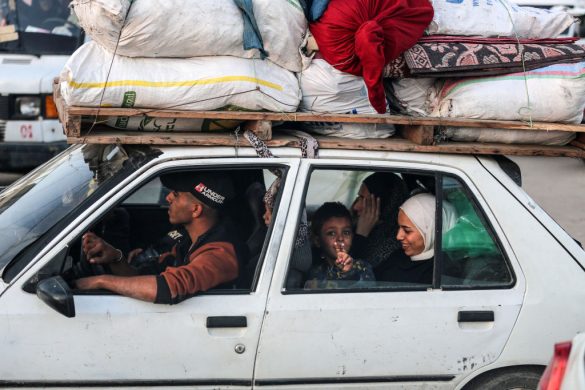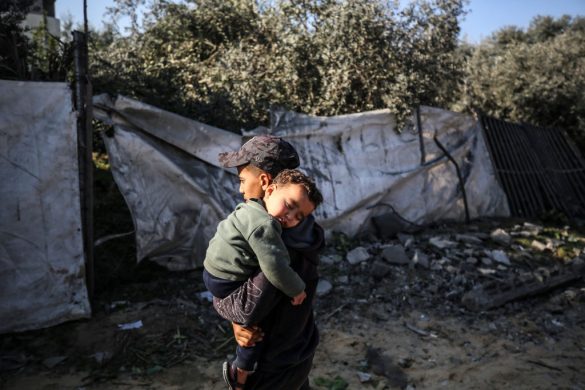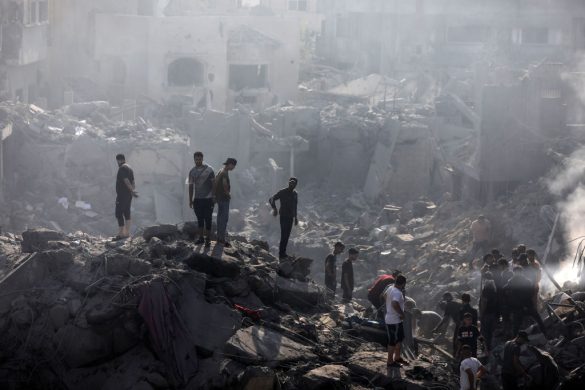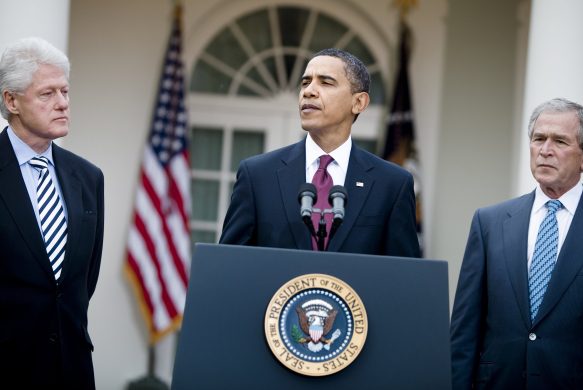Hvilke mekanismer kan tages i brug, hvis ledere fra den ekstremistiske bevægelse Islamisk Stat skal stilles for en dommer og dømmes for halshugninger, bortførelser og ikke mindst de terrorhandlinger, de påfører civilbefolkningerne i Irak og Syrien?
DUBAI, 16 October 2014 (IRIN): The international outcry to the openly advertised atrocities committed in Iraq by the jihadist group calling itself Islamic State (IS, formerly ISIS or ISIL) has led to calls for investigations and punishment, with US President Barak Obama saying “justice will be done” after the killing of journalist James Foley.
This has provoked a direct reaction in terms of air strikes by the US, and the assembling of an international coalition to fight the group.
But beyond this rough military “justice”, what mechanisms exist to turn investigations into court cases that formally bring IS leaders to account?
What exact crimes are IS fighters committing, and perhaps more crucially, what chance is there that the group’s fighters will be held to account?
Who is carrying out investigations?
Several teams of investigators are reportedly looking into evidence of atrocities, including the International Commission of Inquiry for Syria, a UK government-supported investigation team (covering Syria), and proposals are being considered in Washington and London for an Erbil-based IS investigation team.
Separately, on 1 September, the UN Human Rights Council agreed to send an 11-member investigations team to Iraq, a decision that came just days after it published a report (27 August 2014) linking ISIS members to mass atrocities and acts “amounting to crimes against humanity” in Syria in the first half of the year.
Other efforts to investigate recent atrocities in Syria and Iraq include the Syrian Commission for Justice and Accountability (SCJA), the Syrian Justice and Accountability Centre (SJAC), and the Commission for International Justice and Accountability, headed by Canadian investigator William Wiley.
What crimes are we talking about?
IS critics accuse the group of a long list of crimes including public executions, beheadings, kidnappings, torture, forced conversions, sexual abuse, killing captured soldiers and putting communities under siege.
Many of these atrocities – openly advertised by the group on the Internet – would be against the Iraqi legal code, which continues to be served by functional criminal courts (in government-controlled areas).
Though IS may claim otherwise, most would accept that the alleged crimes are taking place on Iraqi territory normally under the jurisdiction of Iraqi law.
However, with IS controlling around a third of the country, national investigations or prosecutions are not realistic for the moment.
And, with Iraq currently in a state of armed conflict, certain violent acts that are forbidden during peacetime become permitted under international law, so IS lawyers could claim that peacetime rules no longer apply.
What about war crimes?
It has become increasingly commonplace to accuse IS of war crimes: global crimes which are technically defined as serious violations of International Humanitarian Law (IHL) – sometimes known as the law of armed conflict.
As an example, on 2 September, Amnesty International published a briefing paper entitled Ethnic Cleansing on a Historic Scale, accusing the group of war crimes as well as other atrocities.
The rules of war are set out in instruments such as the four Geneva Conventions (1949) and the two Additional Protocols (1977), and in customary practice.
For IHL to apply, the violence needs to be legally considered as either an international or non-international armed conflict, technical categories that assessments by the International Committee of the Red Cross (ICRC) go a long way to establish.
According to ICRC, there is a current non-international armed conflict in Syria (in laymen’s terms, a civil war), which means a range of violent acts in the country, even away from the frontlines, may be counted as war crimes.
The laws apply to the conduct of IS forces, and provide for protection to civilians under their care, whether IS accept the rules or not. Without this legal recognition of the armed conflict (as opposed to other types of violence), war crimes prosecutions would not be possible.
In neighbouring Syria where IS also operates, ICRC made public for the first time in July 2012 that it judged the situation an internal armed conflict, meaning IHL applied to regime forces and IS activities there.
Such judgments are based on two criteria – the intensity of the fighting and also whether the parties to the conflict are organized groups.
The last 12 months have seen IS evolving from a loosely organized military group, to a would-be state-builder. This has lifted IS above the sort of lower level terrorist activity elsewhere in the world.
Of course, if the armed conflict was legally categorized as an international armed conflict, a greater range of war rules would apply (although in recent years differences between the two categories have lessened), including formal protection for prisoners of war.
International armed conflicts require two different states to be involved. IS see themselves as a state (in their terms “Caliphate”). However, the lack of any international recognition undermines their claims for the moment.
There is an undoubted (and growing) international element to the fighting.
IS territory straddles significant parts of both Iraq and Syria, where it is fighting against both governments, as well as more recently, an international US-led coalition involving more than 50 countries.
However, at least in ICRC terms, despite being internationalized, the conflict would not be considered international until it involved recognized states on both sides.
Beyond war crimes, the group’s fighters would also have a good chance of facing accusations of crimes against humanity, such as ethnic/religious cleansing, and even genocide, given the apparent attempts to wipe out communities like the Yazidis.
The 1998 Rome Statute defines crimes against humanity as “odious offenses in that they constitute a serious attack on human dignity or grave humiliation or a degradation of one or more human beings” which “are part of a widespread or systematic practice”.
But will the crimes be prosecuted?
Læs hele analysen hos IRIN














